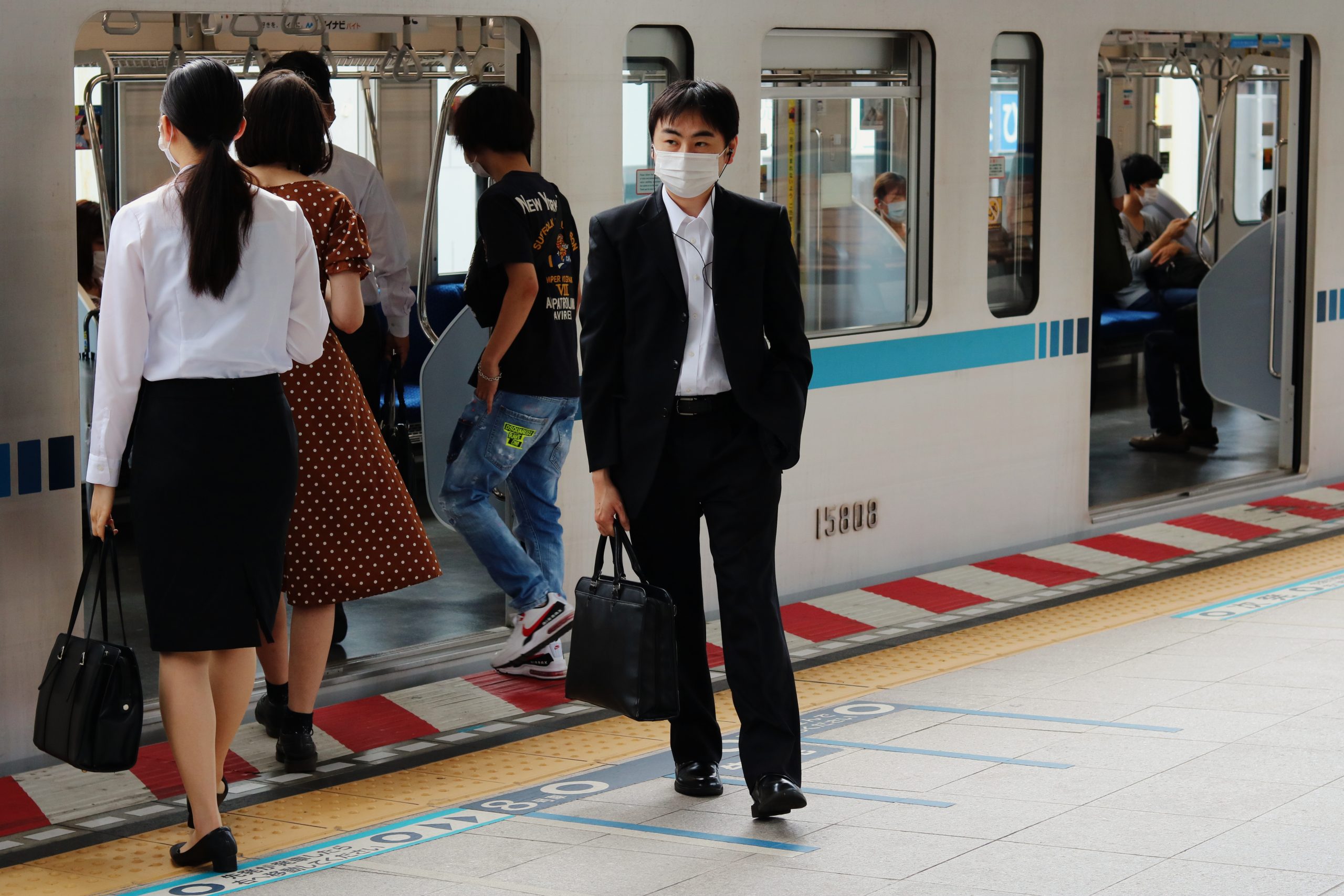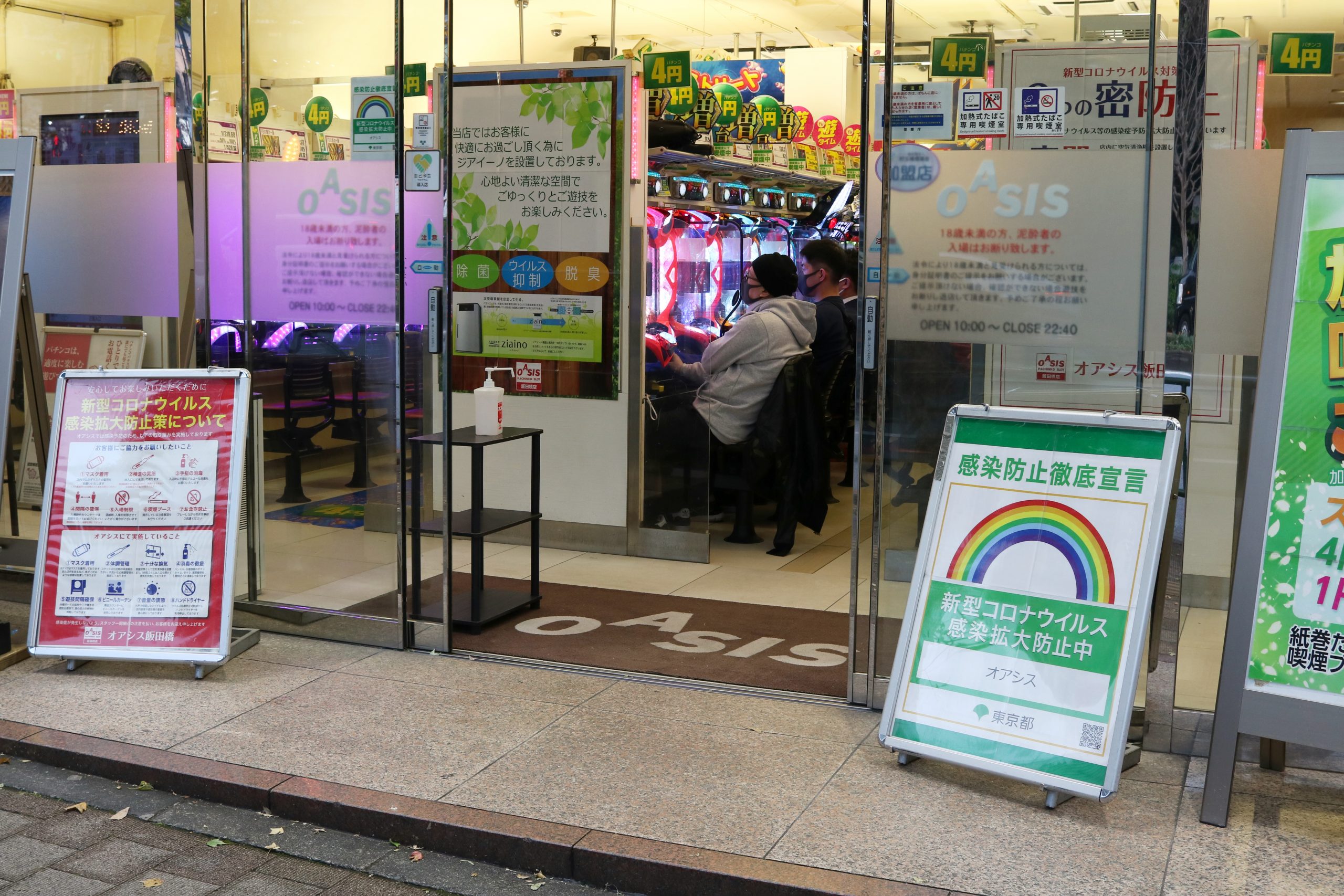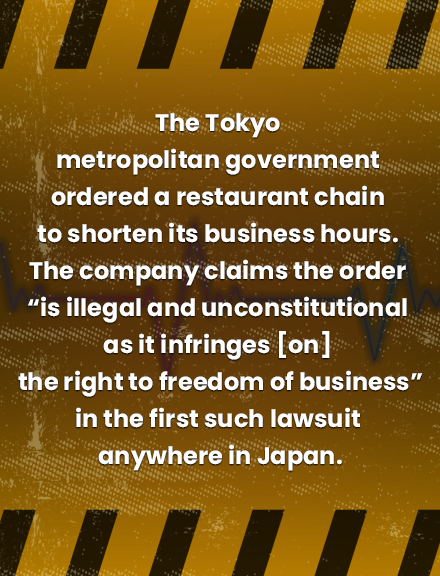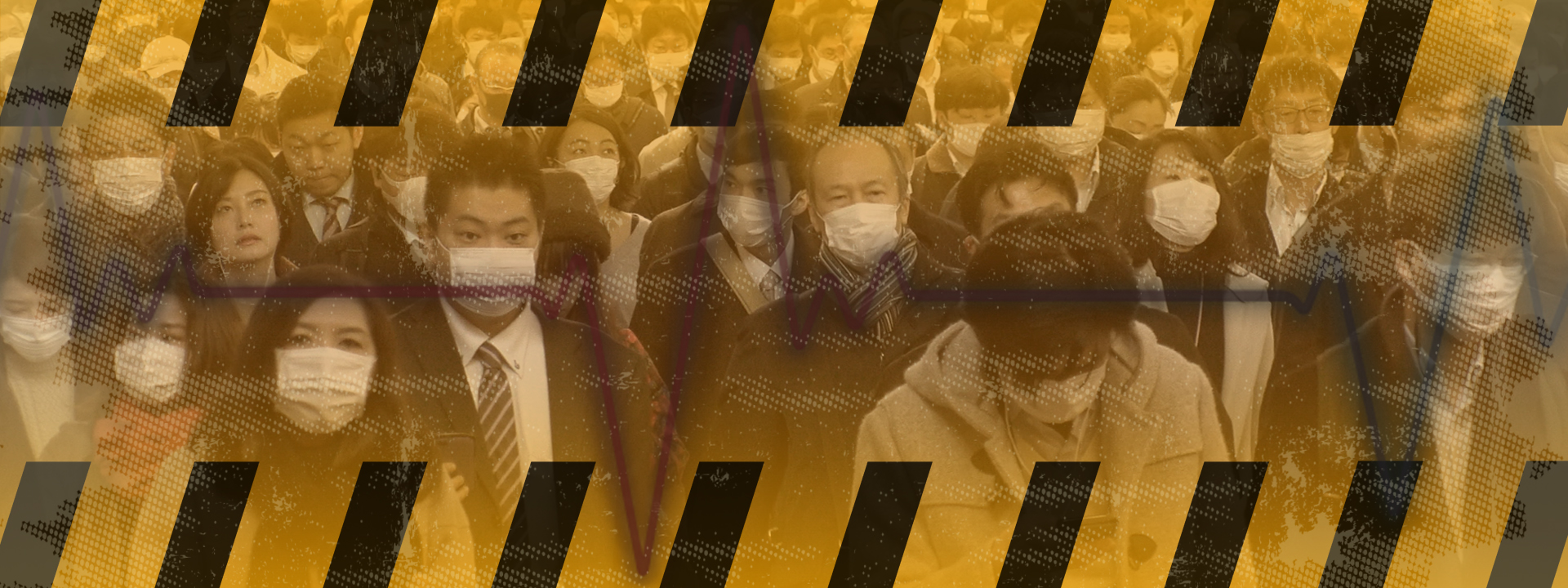By Jen-Shuo Hsu; translated by Liang Wei Huang
On March 21, 2021, the Tokyo metropolitan region became the last area in Japan to exit the coronavirus state of emergency introduced in early January. Japan’s emergency measures do not constitute a “lockdown,” said Akiko Ejima, a professor of constitutional law at the School of Law, Meiji University, in Tokyo. “The measures do not include curfews enforced by penalties and/or fines, nor do they include public transportation shutdowns.”
Instead, enforcing the Japanese model “will rely more on peer pressure and a deep-rooted Japanese tradition of respect for authority,” as reported by Reuters. Beneath this benign façade, though, is a dark side: Japan’s emergency measures could infringe upon human rights.
A controversial Act
A “state of emergency” is generally defined as a temporary extension of executive power or central government authority in the face of sudden, unexpected, and major incidents. In Japan, Article 71 of the Police Act stipulates that “If deemed especially necessary for the maintenance of peace and order in the event of a large-scale disaster or disturbance, and other national emergencies, the Prime Minister may, upon the recommendation of the National Public Safety Commission, issue a proclamation of a state of national emergency in respect to the country as a whole or any part thereof.” During such situations, the prime minister may directly command the national police.

June 2020. Passengers ride the Tokyo Metro Tozai line train. Japan’s emergency measures do not include public transportation shutdowns.
Article 105 of the Disaster Prevention and Relief Act provides that “In a time of an extraordinary disaster whose repercussions on the national economy and public welfare are serious and far-reaching, the Prime Minister may, when he deems it particularly necessary in the interest of enforcing emergency measures, declare a state of emergency involving the whole or part of the affected area, upon referring the matter to a Cabinet Conference.” Among the measures that the prime minister may take are the centralized distribution of material resources, price controls, and stabilization, and monetary debt rollover.
In January and February 2020, then prime minister Shinzo Abe and his administration faced a deluge of complaints about its slowness in deploying epidemic prevention supplies, expanding inspection capacity, and holding official epidemic prevention-related meetings. Many people were infected with COVID-19 aboard the Diamond Princess cruise ship. The scheduled opening of the Tokyo Olympics was shrouded in uncertainty. There was a decline in cabinet support and much pressure from the opposition party.
In late February, Abe announced a range of ironclad policies: the suspension of the conduct of large events and the closure of entertainment facilities; the suspension of classes below the high school level; the prohibition on the hoarding of masks; and the closure of the country’s border to China and South Korea.
On March 14, 2020, Abe announced the enactment of “an amendment to the Act on Special Measures for Pandemic Influenza and New Infectious Diseases Preparedness and Response, related to the novel coronavirus disease.” The Act authorizes the prime minister to declare “a state of emergency, which could lead to the restriction of various private rights.” The controversial law has been widely criticized as an excessive infringement upon human rights.
A savvy move
For the Abe administration, the amendment of the Act is a savvy move that can kill three birds with one stone: promoting the achievements of the epidemic prevention policy; countering the opposition’s criticism; and dividing the opposition camp. It would create an image of the administration as a united party fighting against the pandemic and make it difficult for the opposition party to criticize the administration for “infringing on human rights.”
It is telling that Hiroyuki Hosoda, a senior politician of the ruling Liberal Democratic Party, linked the state of emergency in the Act to the party’s constitution amendment in May 2020. The party has long advocated for the “emergency power clause” of the prime minister to be constitutionalized.
The opposition party argues that the amendment overly expands executive power. The requirements for a state of emergency are vague. The period can be as long as two years, and only the cabinet is required to report to the Diet, which is too lax (Article 32).
Both the government and the opposition said that they would avoid making hasty decisions regarding the declaration of the “state of emergency.” However, before the amendment took effect, Abe announced on February 27, 2020, that he would “request” the suspension of classes at schools below the high school level across the country, which is almost equivalent in effect to the emergency measures under the Act for the prevention of epidemics.

December 2020. Instead of legal penalties, the authorities used social pressure to request businesses like this pachinko parlor in Tokyo to close. However, some local governments disclosed the names of the pachinko parlors that did not follow the supposedly voluntary order.
Another politician, Hokkaido Gov. Naomichi Suzuki, issued a declaration of “state of emergency” from February 28 to March 19, 2020, in Japan’s second-largest island. He “urged” residents to avoid going outdoors and “requested” the suspension of classes at high schools and below.
No legal basis
In contrast to the cautious approach taken during the amendment of the Act in March 2020, Abe issued a declaration of a state of emergency in some prefectures on April 7 under the Act. The order was extended to the entire country on April 16 and was lifted on May 25.
During the state of emergency, the form of the declaration avoided using the mandatory authority of the Act. Instead, it “appealed” to the public to cooperate with measures such as suspending business activity and classes, canceling large-scale events, and reducing outings. Such “appeals” and “requests” have no specific legal basis.
In a “state of emergency,” even without compulsion by the government, the general public and institutions at various levels voluntarily work closely with each other. Nevertheless, since the order is not compulsory in form, it is entirely up to the discretion of local governments to determine the boundaries between so-called “voluntary cooperation” and compulsion. For example, local governments have the discretion whether or not to provide compensation to businesses that voluntarily close during a state of emergency.
Arbitrary decisions
The controversy regarding the infringement on human rights is technically avoided at the moment. The absence of substantive legal grounds for the declaration of a state of emergency may result in situations where the target — say the number of stores to close — can be arbitrary or the amount of compensation can be insufficient. However, no legal remedies can be sought.
Although Japan has not formally used coercive force, it has adopted indirect means to achieve the same effect. For example, some local governments  disclosed the names of the pachinko parlors that refused to follow the supposedly voluntary temporary closure order.
disclosed the names of the pachinko parlors that refused to follow the supposedly voluntary temporary closure order.
The government also ordered the police to carry out raids, purportedly to prevent the spread of COVID-19, on stores that refuse to cooperate with the shutdown of sex industries that are considered high-risk. However, the Act Regulating Adult Entertainment Business limits the legitimate purpose of the police to enter a store to only checking the store for illegal business or employment. Entering a store in the name of disease control is not a recognized purpose. The arbitrary police raids have been viewed as an abuse of power to pressure the operators to “voluntarily” cease business. There are also police officers patrolling the downtown area of Kagawa Prefecture to “persuade” people to go home early.
It is also worrisome that some citizens did not comply with the “appeal.” During the third wave of the COVID-19, which began in October, the Japanese government called on citizens to stay home for three weeks and asked store managers to close early or temporarily close their businesses. However, data showed that the flow of people did not decrease and the number of COVID-19 cases continued to climb after three weeks.
In December 2020, experts said that the government’s “appeal” is too ambiguous and that the public and businesses are tired after six months of “voluntary cooperation.” They urged the government to finetune its COVID-19 strategy.
The citizens push back
On February 3, 2021, an amendment of the Act, which authorizes local government to fine those who refuse to close a store or to be hospitalized, was passed. On March 18, the Tokyo Metropolitan Government “ordered 27 restaurants in Tokyo that did not respond to the request to shorten business hours until 8:00 pm, in accordance with Article 45, 3 of the new Corona Special Measures Law.” If found guilty, the restaurant owners may be fined a maximum of 300,000 Japanese yen (about US$2,750).
Global Dining Inc. is the company that owns 26 of the 27 restaurants. It claims the order “is illegal and unconstitutional as it infringes [on] the right to freedom of business” in the first such lawsuit anywhere in Japan, reports Japan Today. The restaurant operator is reportedly “seeking only 104 yen in damages, saying it is looking to shine light on the impact of government-enforced anti-virus measures that it believes excessively hamper business operations and people’s lives.”
The Japanese model has purportedly avoided the use of coercive force to balance human rights and disease control. However, it has reached its limits. Now that the revised Act empowers local governments to order the closure of restaurants and the hospitalization of citizens, its legitimacy is being challenged by citizens. ●
Jen-Shuo Hsu is an assistant professor in the graduate school of law at the Hokkaido University in Japan.



















